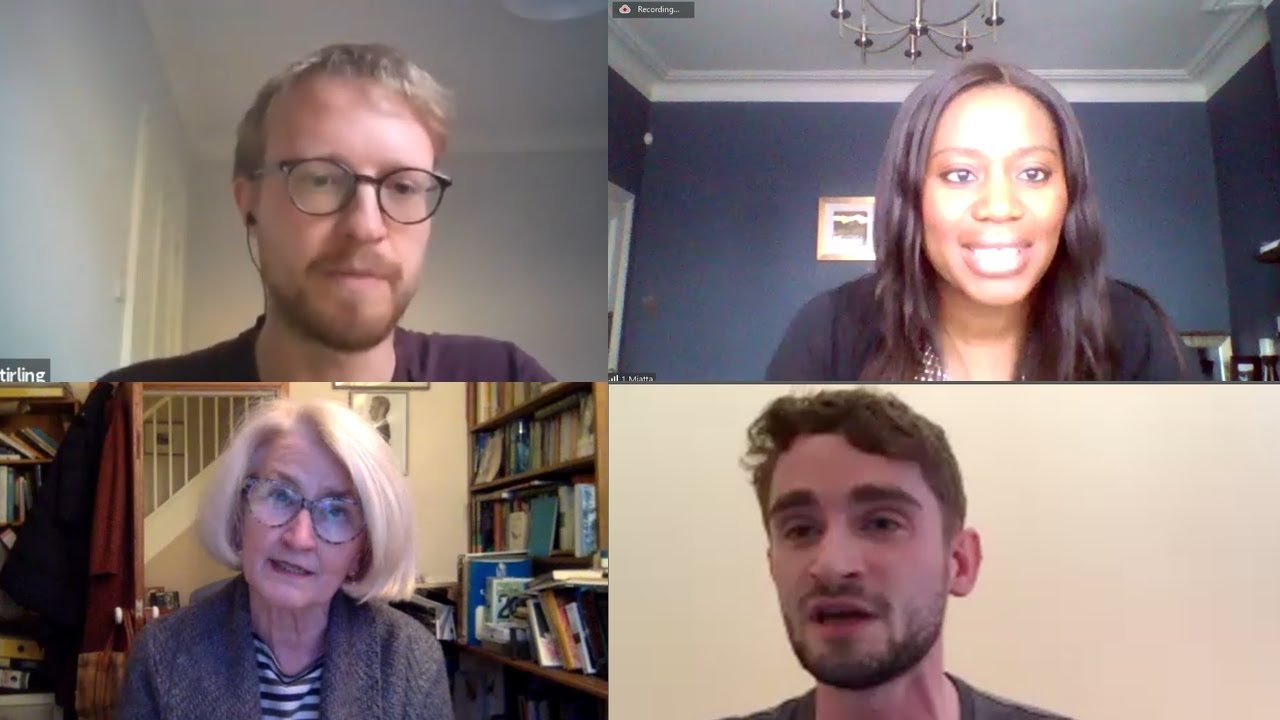Read our coverage of the coronavirus pandemic here.
Can we win the recovery?
Posted on 15 Apr 2020 Categories: Blog, Coronavirus, New economic models, Event reports
by Caroline Hartnell
New Economics Foundation (NEF) will be holding Weekly Economics Briefings to discuss challenges the coronavirus crisis poses to progressives — from analysing policy decisions to highlighting the organising being done in communities and workplaces right now. The first call, on Thursday 9 April, featured NEF CEO Miatta Fahnbulleh, NEF’s head of economics Alfie Stirling, and economist and author Ann Pettifor. Nearly 300 people attended.

Miatta Fahnbulleh kicked off with an overview of what’s happening. Coronavirus is shining a spotlight on a deep-seated economic crisis, she said. Living standards have been stagnating in the UK since 2008. 14.5 million people are in poverty, with no cushion to help in a crisis. Work is increasingly precarious, with the gig economy and people being laid off all too easily because of the weakening of unions and resulting erosion of workers’ rights. Austerity has cut the social security safety net: £94 is not enough to live on.
But the debate is changing. There is a growing consensus that something better has to come out of the crisis. Even the Financial Times is insisting that the pandemic is exposing the frailty of our economy and our society.
The government response is tearing up the old rule book; things generally seen as unacceptable are now acceptable. This opens up space for moving to a better sort of economy. We need to learn lessons from the present crisis and apply them to the more existential crisis of ecological change. This is a chance to invest in better jobs and build a more environmentally sustainable economy. If we can win the recovery, there is some light from the darkness of the pandemic.
How do we get a new social settlement as a country?
What does this mean for progressives? What changes should we be pushing for in the short and the long term? These were the questions posed by Alfie Stirling. The next few weeks/months will be about dealing with the emergency, he said. The recovery will shape the economy for the long term. ‘We need the right balance between relevance and radicalism. If the changes we put forward amount to no more than tweaking, we’ll be part of the problem.’ But we do need to be relevant if we want to be part of the conversation.
The immediate issue is living standards.
There have been 1 million new claimants for Universal Credit in three weeks whereas in the 2008 crisis it took three years to reach that number. Despite huge interventions by the government, there will be gaps in support for employees and the self-employed. We need to look at incomes and the cost of living. Housing costs, for example, are eye-wateringly high. UBI and taxation of wealth must be on the table.
Stirling outlined four key areas for the recovery:
- Using recovery to create high-quality jobs in places where jobs have been lost in a way that is consistent with a low-carbon economy
- Making sure we don’t return to austerity. Austerity put us in a terrible position, undermining the NHS and care homes, creating individual debt, etc
- Raising tax on the wealthy as a way of reducing inequality and ensuring investment doesn’t flow to the richest
- Measuring the economy more broadly, in terms of wellbeing as well as GDP, so we acknowledge the value of key workers such as cleaners and carers and don’t continue to put GDP before people’s lives
One key thing is to make the safety net more unconditional and more generous. In Stirling’s view, UBI may not be the right solution at this point. NEF has been talking about a minimum income guarantee to ensure that no one’s income falls below a certain level.
Need to change the global financial system
We didn’t achieve any change after 2008, said Ann Pettifor. Progressives didn’t understand the global financial system that we are part of and so couldn’t respond appropriately. We need to brief ourselves and strengthen our ability to act. If we want to reform our domestic economy, we need to change the global financial system. In a global economy, we can’t tax wealth, for example, because companies and rich individuals simply move their wealth elsewhere.
As believers in the Green New Deal, we should be more self-sufficient, said Pettifor. Even the Economist is predicting the breakdown of global supply chains. ‘We need to grow our own green beans.’
Click here to register for future NEF briefings.
Posted on 15 Apr 2020 Categories: Blog, Coronavirus, New economic models, Event reports
